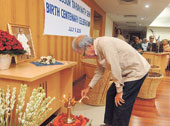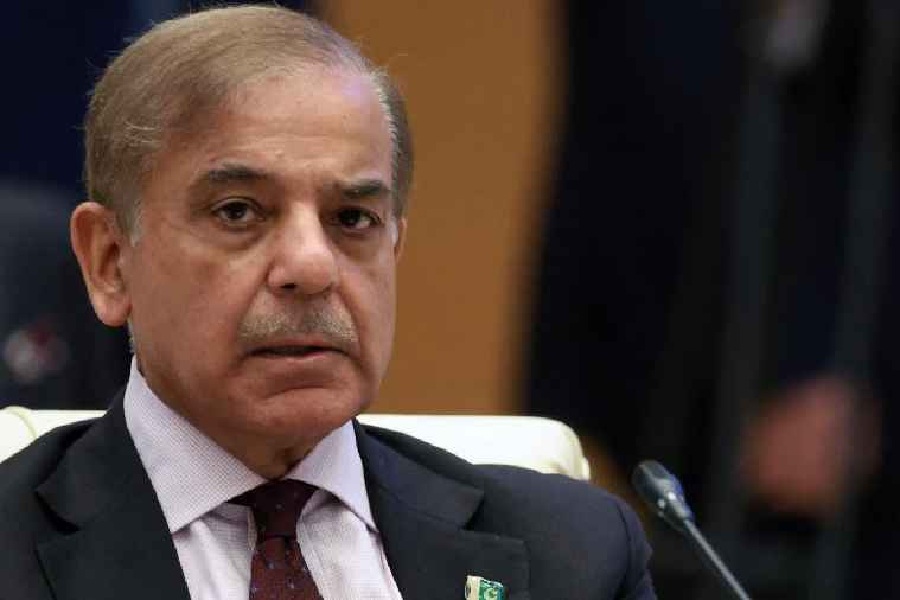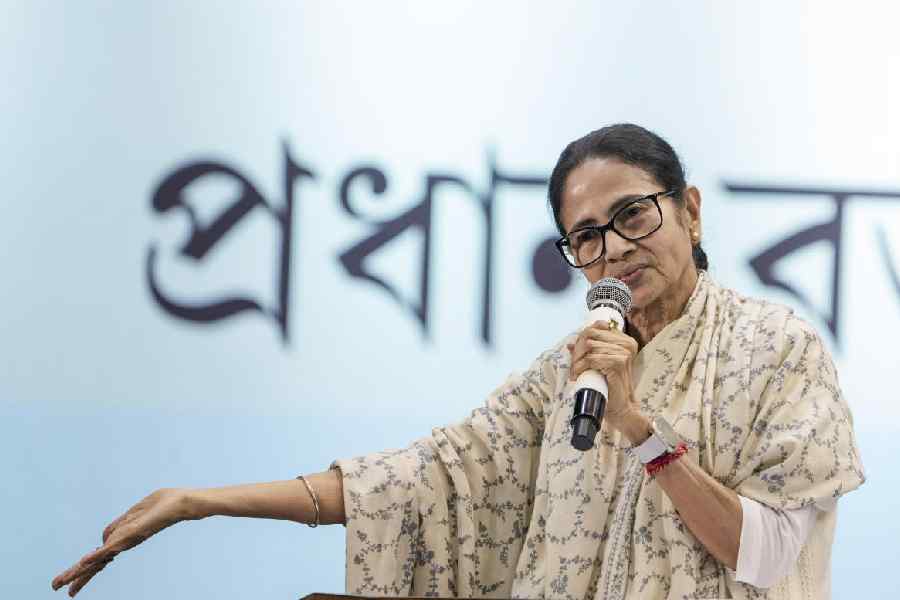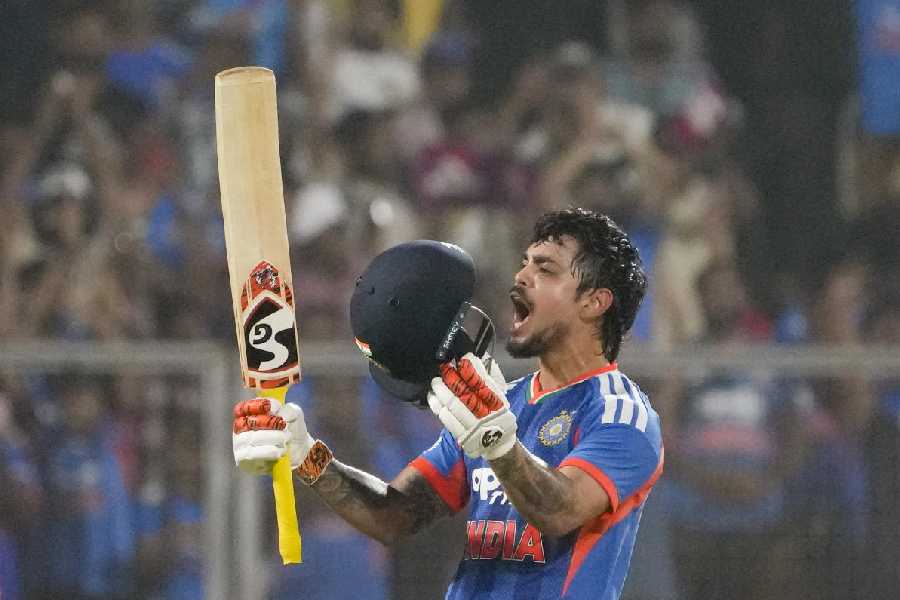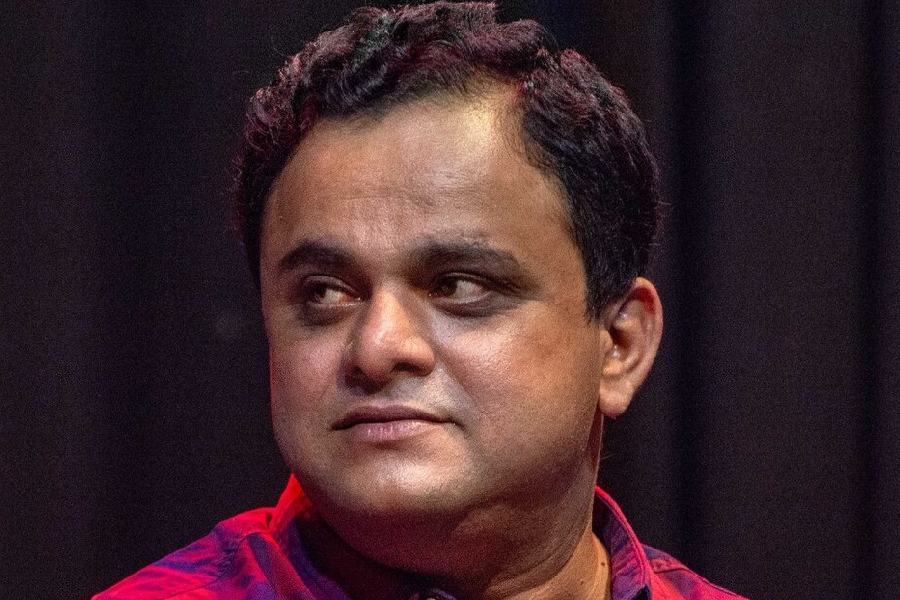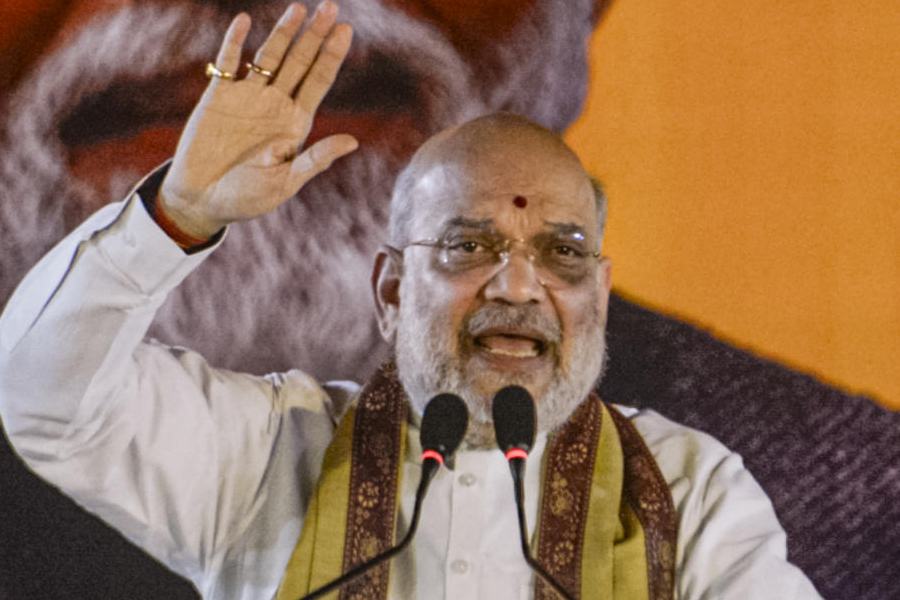 |
| Professor Tarak Nath Sen centenary celebrations at ICCR on July 9. Picture by Rashbehari Das; (below) Michael Jackson |
 |
On the first day of Tarak Nath Sen’s intermediate class at Presidency College (in the 1940s), Professor Prafulla Chandra Ghosh asked his students how many plays by Shakespeare each had read. While the answers hovered between zero and two-or-three, Sen, sitting at back, replied: “All of them, sir”. Ghosh proceeded to check the veracity of the claim, and was more than satisfied. Sen as a teacher was no less demanding. Ashoke Mukherjee, a student of Sen and a former professor of English at Presidency College, recounted how Sen would grade his students “good” and “fair” like most other teachers, but, having no patience with “mediocre” or “average”, would quickly plunge into “poor” and “hopeless”. The last category was where most students landed.
Had he been alive today, Tarak Nath Sen would have been 100 this year. Several of his students and many Presidency College alumni turned up on Thursday, July 9, to celebrate his birth centenary at the Indian Council for Cultural Relations.
Sukanta Chaudhuri, professor of English at Jadavpur University, who was among Sen’s last tutorial students, paid tribute to his mastermoshai through a lecture titled ‘Living with tragedy’. The lecture was rich in insight and acute in its analysis of tragedies, from Oedipus Rex to King Lear to Riders to the Sea, unfolding how tragedies like King Lear, which, rather than being model tragedies, threaten tragic models and sometimes verge upon the comic and the carnivalesque. Chaudhuri drew a distinction between two kinds of potentially tragic figures. In one, exemplified by Oedipus, the potential is geared towards self-destruction, while in the other, for instance Maurya in Riders to the Sea, the potential is channelled towards survival. Sen, known to have lived and breathed Shakespeare, would have been pleased with the tribute, one reckons.
Before beginning his “academic” exercise, Chaudhuri talked briefly about Sen as the architect of the stunningly modern English curriculum of Presidency College that was a trendsetter in English studies in Bengal and India. The one-on-one tutorial system that made the college stand out in the Fifties also bore the mark of Sen’s genius. The teacher who had no qualms about calling a girl student (Malabika Sarkar) to his home for a tutorial discussion on As You Like It at 10.30 pm, stood first in his Matriculation examination and in every examination since. Those were the times when board examination toppers also studied literature.
The image of Sen that has lived on is of a tall, frail man occupying a tiny cubicle adjacent to the English department library. A commemorative volume has been published by Presidency College alumni.
Come together
“A little bit of West Bengal exists in Devon at the Dartington Hall, in the United Kingdom where Leonard Knight Elmhirst, inspired by Rabindranath Tagore, set up a Utopian conjunction to promote the performing arts,” said Gavin Henderson, the principal of Central School of Speech and Drama, London, to a small but keen audience at British Council on Friday. His lecture was titled Performing arts as a profession or hobby.
Henderson began by describing the earliest forms of public theatre. “The public attending these performances were made to feel they were an intrinsic part of it,” he said. There was no sense of the ‘them’ and ‘us’. In the twentieth century, with the arrival of electronics — cinema, broadcasting and recording, engagement with the audience has reduced and art has become more of a commodity that people try to purchase at a higher price from the other.
“It is necessary to recapture participation and technology can help us as the Internet has done, in sharing ideas through blogging,” he said.
There are problems of pursuing theatre. There are exams for students. Theatre is not a viable career option in Calcutta.
Henderson did not offer any easy solution. But he reminded that only passion for the arts has allowed creativity to remain alive. “With 2011 being the 150th birth anniversary of Tagore, let us hope we can use his example to create opportunities,” said Henderson, adding that nobody can stop an idea that has found its time.
Umbrella trouble
Monsoons are tough times in Calcutta. The waterlogging, the chaotic traffic, the crowd — especially the crowd of wet bodies — pressing against each other. It’s never easy to use an umbrella in this crowd. So you may be relieved to find yourself at the entrance to a Metro station and folding your umbrella you may start walking down the stairs. But be prepared for trouble there too.
Last week, a young woman found herself in an argument with a security person at the Sovabazar Sutanati station over her umbrella. “But it is only an umbrella,” wailed the commuter. “No, it is too big. We only allow small, folded umbrellas,” said the woman constable on duty, pointing at the offending umbrella: a trendy, blue-and-green one, about two feet long, a potential weapon. Finally, looking at the heartbroken umbrella-carrier, she relented: “Ok, I’ll allow you this time. But you shouldn’t carry this umbrella in future.”
Hope someone could ban the water-logging and the monsoon chaos too.
MJ menu
On Monday, a pub in Salt Lake started a cocktail festival in memory of Michael Jackson, presumably to allow fans to drown their sorrow in liquor. But it was not enough for them to serve only the drinks. There would be an accompaniment as well. They handed out a menu card, to let customers know which platter paired with which drink. The man who wrote the menu card had worked hard, unaware of the consequences.
The first cocktail was called “Dangerous”, the second one “Bad”. The third, called “Moonwalk”, had a side dish the virtues of which were described in the following words: “Tandoori Chicken will take off”. The next option, “History”, was to be served with Butte ki Kebab, which, the menu card, claimed “will show the history”. The last concoction was called “Man in the Mirror”. This came with Bhuna Ghost Ball. The customer choked on his glass of water and tumbled out of the pub in semi-darkness. Fully conscious.

